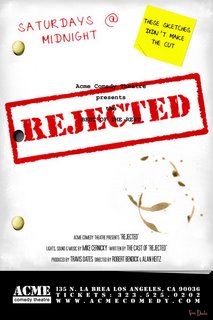
Sorry to do this, but after I posted this to the Writer's Digest forums a published author I talk to on there regularly sent me this, extremely encouraging reply!
Congratulations, Sipper!That's not a rejection letter at all! When an editor tells you what she thinks is wrong with a manuscript and asks that you consider resubmitting it to her after working on it, that's called a revision letter. Revision letters are generally the best news that an unagented first-time writer can expect. In my experience, very few reputable editors will send an out-and-out acceptance letter back in answer to a query from an unagented author.
The editor knows that some revision is needed (revision is just about *always* needed!), and the editor isn't going to offer a contract to an unagented writer until learning how well that author can work at the revision stage.Should you choose to revise under this editor's guidance, you have an invitation back. So you haven't been rejected.
Does this mean that an unagented author should count on being accepted by this publishing house? No, but that author is no longer a face in the crowd. The most important link has been made: a teaming up with an experienced editor who sees potential in the work and wants to work on the story. If you wrote back indicating that you were ready to form such a relationship (which you aren't at this point due to your multiple submissions), this editor would probably go ahead and tell you the rest of the things she sees that need work.
Don't ever feel bad about learning that--revision letters just get you to the next stage. My own latest revision letter was six pages long and required me to adjust two-thirds of my manuscript (everything had to change a LITTLE bit). Acceptance usually comes, not from one editor, but from that editor and the house's publisher, or from an acquisitions committee.
So, even if this editor works with you to polish the manuscript through several revisions, the book still might not make it through. But the editor's advice can be worth the pain--that manuscript often comes out of the process in much better shape and ready for quick acceptance somewhere else.Even published authors receive revision letters that say "Not right yet, but keep working on it and show it to us again."
And while a seasoned author's agent probably will sell the manuscript right off in a bidding war or receive an offer from a publishing house right away, that sale generally still comes with the understanding that this manuscript will have to make it successfully through its revisions.My Holt contracts state that if I fail to supply a manuscript that is satisfactory to the publishing house by their due date, I will have to repay my signing money.
I haven't seen the terms of my latest contract yet to check whether or not that one says the same, but I'm guessing that it does. So rejoice! You have as much of a home as any first-draft author generally ever does. Now it's up to you to plan your next move: whether or not to reject HER. And that's a very nice feeling!
Clare
This was written by Clare Dunkel, a three-time published writer. I'm more than elated! Cloud 9, anyone?


